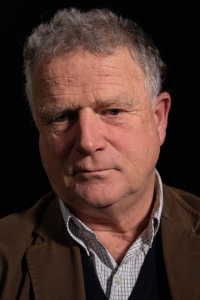It is natural to search for one’s roots

Download image
Thomas Thun, a descendant of the Děčín branch of the noble Thun-Hohenstein family, was born on 5 October 1949 in Ering, Bavaria. His father, Christoph von Thun-Hohenstein, came from the castle in Jílové near Děčín, but he spent the end of the war in a prison camp in Bavaria. After the war, the Thun family hid from the Soviet army in a hunting lodge on the border, but they were discovered. They were deported in the spring of 1946, by cattle truck to the Wiesau camp. Thomas visited the Czechoslovakia for the first time with his father and brother in 1969, and from then on he visited more frequently. He studied psychotherapy, and in 1980 married Claudia Countess von Dobhof, a noblewoman with American citizenship. In the 1990s he unsuccessfully tried to have the family property restored. For the purpose of Czech-German reconciliation, he personally sent a monthly donation to support the survivors of the concentration camps. This symbolic gesture was appreciated by Václav Havel, who invited him to the Prague Castle. Today Thomas Thun is involved in the restoration of the Děčín castle and its archives.

